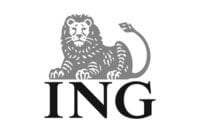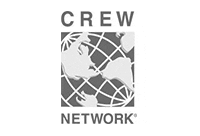"A survey by the Corporate Executive Board found that sales teams with strong intra-team communication are 25% more likely to exceed their quotas."
Unlocking your team’s full potential in sales requires more than just understanding products and markets. It calls for a cohesive team that communicates effectively, empathizes with clients, and adapts swiftly to changing scenarios. Rob Salafia, with his unique blend of experience as a professional actor and a seasoned executive coach, brings invaluable insights into team dynamics. Drawing from his expertise, we introduce five simple yet impactful activities that can significantly enhance team dynamics and sales performance.
1. Role-Playing Exercises: Enhancing Customer Understanding
Role-playing is an effective tool for sales teams to step into their customers’ shoes. By simulating various sales scenarios, team members can gain insights into different customer perspectives, refine response strategies, and develop crucial empathy, enhancing their emotional intelligence in sales situations.
2. Storytelling Workshops: Sharpening Communication
Storytelling is a vital skill that allows sales teams to present their ideas and solutions in a way that captivates and resonates with other team members. It’s not just about selling; it’s about connecting. By mastering storytelling, teams can transform their approach from mere transactions to meaningful interactions that can lead to long-term collaboration and trust.
3. Improvisation Sessions: Boosting Creativity and Flexibility

Improvisation exercises are not just fun, they are critical in developing quick thinking and adaptability. These sessions challenge sales teams to think on their feet, fostering creativity and problem-solving skills, which are essential in the dynamic world of sales.
4. Feedback Circles: Fostering Growth and Recognition
Inspired by the performing arts, where feedback is an integral part of growth, feedback circles in sales teams encourage open and supportive discussions on strategies, performance, and areas for improvement. This practice nurtures a culture of continuous learning and recognition.
5. ‘Coffee Connect’ Gatherings: Building Relationships
Informal gatherings like ‘Coffee Connect’ provide a relaxed environment for team members to bond over personal stories and shared interests. These casual interactions are vital for building trust and camaraderie, leading to a more united and effective sales team.
"As a performer, I learned the power of connection, empathy, and adaptability on stage. These are the same qualities that can transform a sales team from a group of individuals to a cohesive unit. The stage taught me that every interaction is an opportunity to create a lasting impression, and it's this ethos that I bring into every training session."
Rob Salafia, Executive Presence Coach and Former Performer Tweet
The Role of Leadership in Fostering Team Collaboration
Effective leadership is crucial in building a collaborative sales team. Leaders should exemplify teamwork in their actions, encourage collaborative efforts, and provide the necessary resources and support. This includes facilitating open communication, recognizing individual and team achievements, and creating opportunities for team members to develop and showcase their skills. By doing so, leaders can cultivate an environment where teamwork and collaboration are the cornerstones of the sales strategy.
The magic of a successful sales team lies in how well its members can work together. By fostering a culture of teamwork and collaboration, you unlock the full potential of your sales force, leading to increased productivity, better problem-solving, and a more positive work environment. This is the ‘Sales Magic’ – where collaboration and teamwork turn individual efforts into collective triumphs. The Role of Leadership in Fostering Team Collaboration.





























